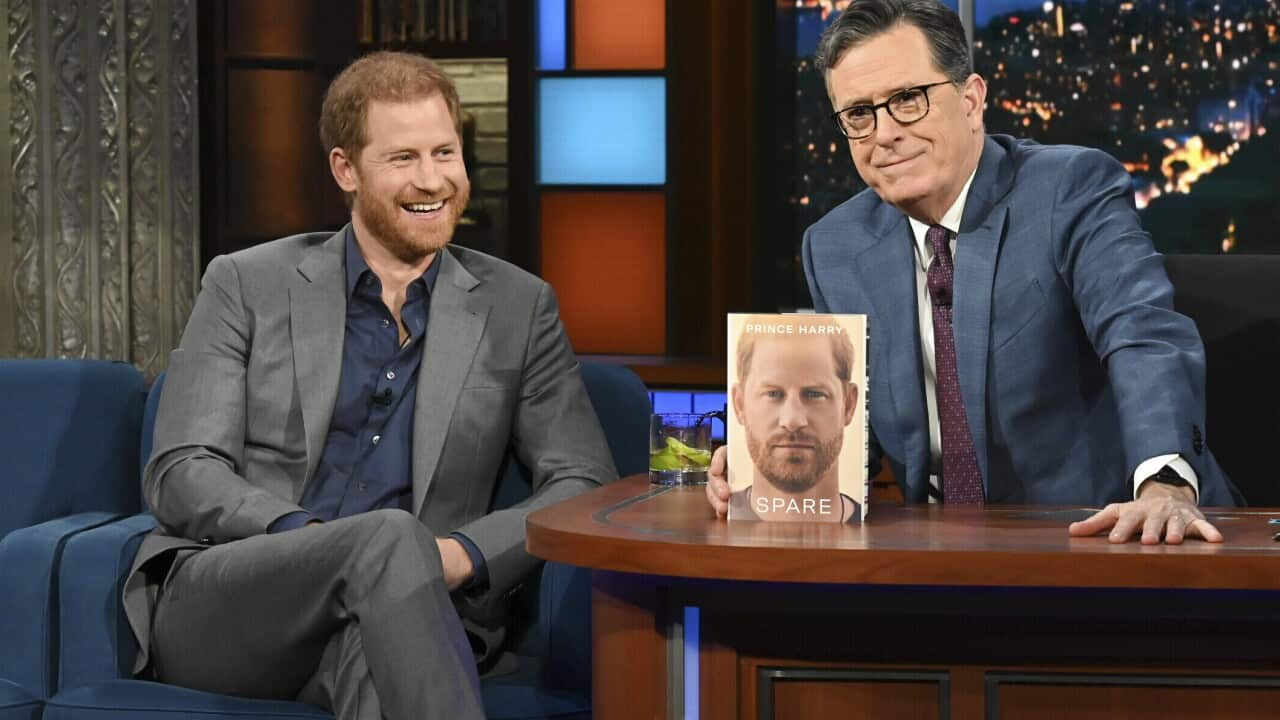Key Points
- Prince Harry had filed a phone hacking case against Mirror Group Newspapers.
- The judge ruled that Harry's phone was hacked "to a modest extent" by the publisher.
- The duke was awarded $267,000.
Prince Harry the Duke of Sussex has been awarded damages at London's High Court after bringing a phone hacking claim against a tabloid newspaper publisher.
Justice Fancourt concluded there was "extensive" phone hacking generally by Mirror Group Newspapers (MGN) from 2006 to 2011, "even to some extent" during the Leveson Inquiry into media standards.
The judge also ruled that Harry's phone was probably hacked "to a modest extent" by the publisher. The duke was awarded £140,600 ($A267,000).
Harry, 39, sued MGN for damages, claiming journalists at its titles - the Daily and Sunday Mirror and Sunday People - were linked to methods including phone hacking, so-called "blagging" or gaining information by deception, and use of private investigators for unlawful activities.
His case was heard alongside similar claims brought by actor Michael Turner, who is known professionally as Michael Le Vell and is most famous for playing Kevin Webster in Coronation Street, actress Nikki Sanderson and Fiona Wightman, the ex-wife of comedian Paul Whitehouse.
The allegations in their claims about unlawful activity at MGN's titles covered a period from as early as 1991 until at least 2011, the court was previously told.
Fancourt, the judge who oversaw a trial of the claims earlier this year, delivered his ruling at a hearing on Friday.
The high-profile trial ended in June after seven weeks of evidence from dozens of witnesses, including former journalists, editors, private investigators and MGN executives.
Many other witnesses also submitted written testimony to the trial, such as the friends, family, and colleagues of those bringing cases against the publisher.
Harry faced eight hours of questioning over two days during a witness box appearance that drew the attention of the world's media.
MGN largely contested the claims and denied that any newspaper articles complained of resulted from phone hacking while contending that the vast majority did not arise from any other unlawful activity.
In a summary of his ruling, Fancourt outlined his findings over Harry's case against MGN.
The judge said: "I have found the duke's case of voicemail interception and unlawful information gathering proved in part only.
"I found that 15 out of the 33 articles that were tried were the product of phone hacking of his mobile phone or the mobile phones of his associates, or the product of other unlawful information-gathering.
"I consider that his phone was only hacked to a modest extent and that this was probably carefully controlled by certain people at each newspaper.
Following the ruling, an MGN spokesperson said: "We welcome today's judgment that gives the business the necessary clarity to move forward from events that took place many years ago.
"Where historical wrongdoing took place, we apologise unreservedly, have taken full responsibility and paid appropriate compensation."











